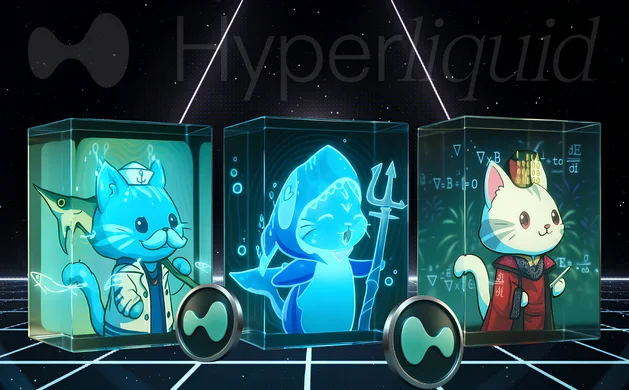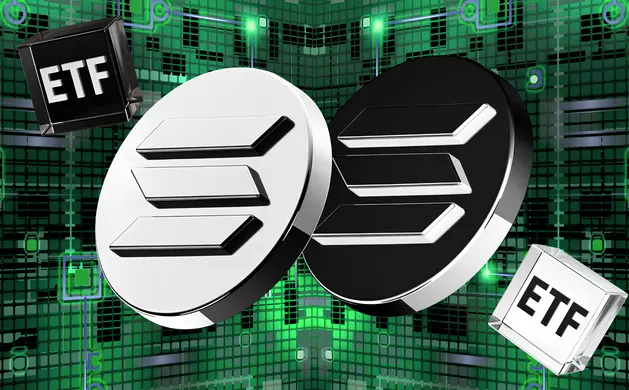Trump's World Liberty Gets $100 Million From UAE Fund

GM. Trump’s World Liberty just landed $100M from a UAE fund, marking its second major Gulf tie-up as the DeFi project eyes global expansion and prepares WLFI tokens for trading.
Meanwhile, Kraken rolls out a payments app to 110 countries, a judge blocks Ripple’s SEC settlement, and Galaxy closes a $175M fund to back crypto infrastructure startups.
Here is everything you need to know. 👇
Trump's World Liberty Gets $100 Million From UAE Fund
The UAE’s Aqua1 Foundation has purchased $100 million worth of WLFI, the native token of President Trump’s crypto venture World Liberty Financial. The buy was announced Thursday in a joint statement and positions Aqua1 as a major backer of the Ethereum DeFi platform.
World Liberty’s co-founder Zak Folkman expressed enthusiasm about working closely with Aqua1. He said the partnership validates their plan for global financial innovation and brings new opportunities to decentralized finance. WLFI tokens currently provide governance rights but cannot be transferred.
The team is preparing to make the tokens tradable soon, which would open liquidity for holders and boost market activity. Interestingly, earlier this month, financial disclosures revealed that the president received more than $57 million from World Liberty token sales.
This investment symbolizes World Liberty’s second major tie-up with Gulf capital after a $2 billion Binance deal involving its stablecoin USD1. As scrutiny from US lawmakers builds, the Trump-linked DeFi project is accelerating its international playbook and aiming to expand globally.
Kraken Launches Payments App Across 110 Countries
Crypto exchange Kraken has launched a new payments app called Krak, enabling users to send crypto and fiat to over 110 countries. The app supports more than 300 currencies and introduces user-specific Kraktags, allowing transfers without traditional bank accounts. Kraken said the app was designed to modernize payment rails and compete with firms like Cash App and PayPal.
The company is also expanding regulated services in Europe after securing a MiCA license from Ireland’s central bank. That approval allows it to offer crypto products across 30 EEA countries, complementing existing VASP registrations in several member states. Co-CEO Arjun Sethi said Krak marks a key step toward building financial infrastructure outside the legacy banking system.
Judge Rejects SEC And Ripple Settlement Bid
US District Judge Analisa Torres rejected a second attempt by the SEC and Ripple Labs to finalize a proposed $50 million settlement. The judge refused to dissolve a permanent injunction ordering Ripple to obey securities laws, citing a persistent risk of future violations. Torres emphasized that no “exceptional circumstances” justified modifying her original judgment.
The rejection follows changes at the SEC after President Trump’s election and a policy shift under new leadership. Ripple, meanwhile, has moved ahead with XRPL interoperability plans by integrating cross-chain protocol Wormhole. The integration enables XRP Ledger tokens to move across more than 35 blockchains, aligning with Ripple’s push into institutional finance infrastructure.
Galaxy Closes $175M Fund For Crypto Startups
Galaxy Asset Management has closed its first external venture fund at $175 million, exceeding its $150 million target. The Galaxy Ventures Fund I will back roughly 30 startups building blockchain infrastructure, stablecoins, payments, and tokenization products. The firm said interest from institutions and family offices drove the fund’s oversubscription.
CEO Mike Novogratz called the raise a vote of confidence in Galaxy’s edge amid a tough market for crypto venture capital. Having previously invested from its own balance sheet, Galaxy now opens its strategy to external partners. Recent portfolio companies include Ethena, Rail, and Yellow Card, with a focus on practical blockchain applications.
Data of the Day
The European Commission has taken a more lenient stance toward jointly issued stablecoins from EU and non-EU entities. In contrast to ECB warnings about financial instability, the Commission said risks are manageable under the MiCA framework. It noted that redemptions would likely occur in jurisdictions like the US, where reserves are held.
The Commission’s paper, released in June, argues that fungibility and usability across borders are key to stablecoin utility. It cited Tether’s decision not to comply with MiCA as proof that the regulation already deters non-compliant issuers. Industry groups welcomed the findings, saying the EC’s position supports cross-border crypto finance without compromising oversight.

More Breaking News
- Coinbase Derivatives will debut nano Bitcoin and Ether perpetual-style futures on July 21, offering round-the-clock US trading access through a fully regulated platform.
- World Chain launched an onchain tool called Priority Blockspace for Humans to guarantee verified users faster transaction access by excluding most bot activity.
- Bit Digital is fully abandoning Bitcoin mining to prioritize Ethereum staking and treasury strategy, converting its BTC holdings into ETH over the coming months.
- DeFi protocol Resupply suffered a $9.3 million exploit due to a smart contract flaw, slashing its total deposits and severely devaluing its native RSUP token.
- India’s ruling party spokesperson urged the government to launch a Bitcoin reserve pilot, calling it a proactive step toward sovereign digital asset positioning.
- Metaplanet bought another 1,234 BTC for $133 million, raising its holdings to 12,345 Bitcoin and pushing it past Tesla on the corporate leaderboard.
- Monero-only hacker 'IntelBroker' was arrested after accepting a single Bitcoin payment from an undercover FBI agent.
For the latest updates on digital asset markets, follow us on X @Datawalletcom.
.webp)
Written by
Jed Barker
Editor-in-Chief
Jed, a digital asset analyst since 2015, founded Datawallet to simplify crypto and decentralized finance. His background includes research roles in leading publications and a venture firm, reflecting his commitment to making complex financial concepts accessible.







